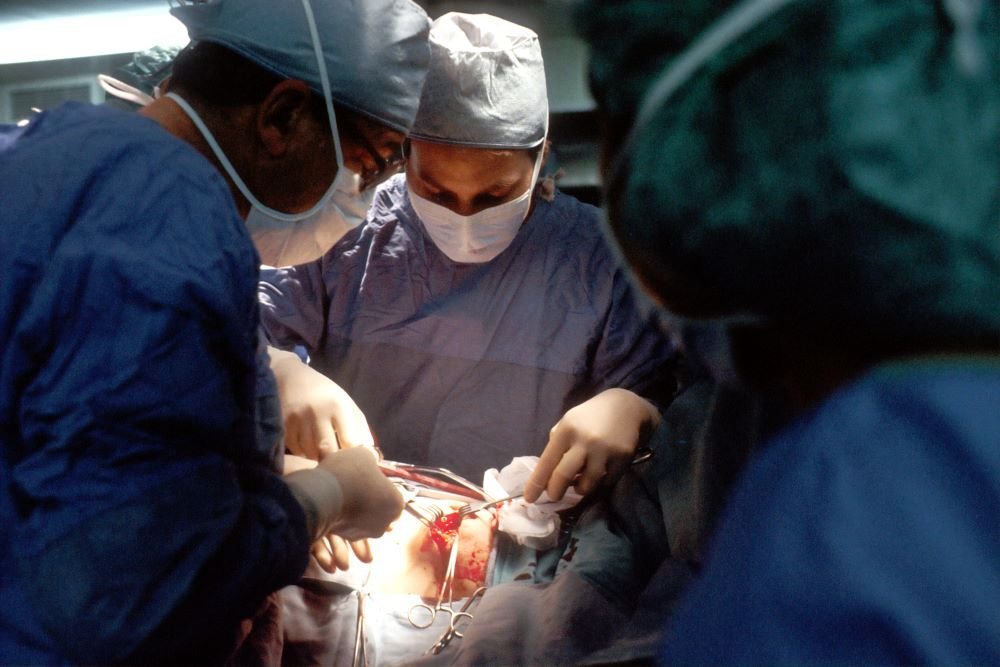As of my last update in September 2023, thoracic surgery, like any other type of surgery, encompasses various procedures that may involve organs within the chest such as the heart, lungs, esophagus, and other structures. The specific risks associated with thoracic surgery can depend on the particular procedure, the patient’s overall health, and several other factors. However, there are several common risks and potential complications that can be associated with thoracic surgery:
1. **Infection:** Surgical sites, incisions, or internal organs may become infected.
2. **Bleeding:** While some amount of bleeding is expected during and after surgery, excessive bleeding can occur and might require a transfusion or additional surgery to control it.
3. **Pulmonary Complications:** These can include pneumonia, lung collapse (pneumothorax), and difficulty breathing. Post-surgery, patients are at a higher risk for pulmonary issues, especially if they have underlying lung conditions.
4. **Cardiac Complications:** These may include heart attacks, irregular heart rhythms, or heart failure, especially in patients with pre-existing heart conditions.
5. **Blood Clots:** Surgery increases the risk of blood clots forming, which can be dangerous if they travel to the lungs (pulmonary embolism), brain (stroke), or heart (heart attack).
6. **Reaction to Anesthesia:** Some patients have adverse reactions to anesthesia, ranging from mild allergic reactions to severe responses such as malignant hyperthermia.
7. **Nerve Damage:** There’s a risk of damaging nerves during surgery, which can lead to pain, numbness, or even paralysis depending on the location and extent of the damage.
8. **Leakage from Surgical Sites:** For surgeries involving the gastrointestinal tract or lungs, there’s a risk of leakage from the repaired sites, which can lead to serious complications.
9. **Pain:** Post-surgical pain is expected, but in some cases, the pain can be severe or become chronic.
10. **Mortality:** As with any surgery, there is a risk, albeit usually low, of death, which can be influenced by the complexity of the surgery and the patient’s pre-existing health conditions.
It’s crucial for patients considering thoracic surgery to have a thorough discussion with their surgeon about all potential risks and benefits, how their medical history might impact the surgery, and any specific concerns they may have. Preoperative evaluations and preparing physically for surgery can help mitigate some of these risks. Additionally, advancements in surgical techniques, including minimally invasive procedures, have generally helped in reducing the risk and severity of complications associated with thoracic surgery.






